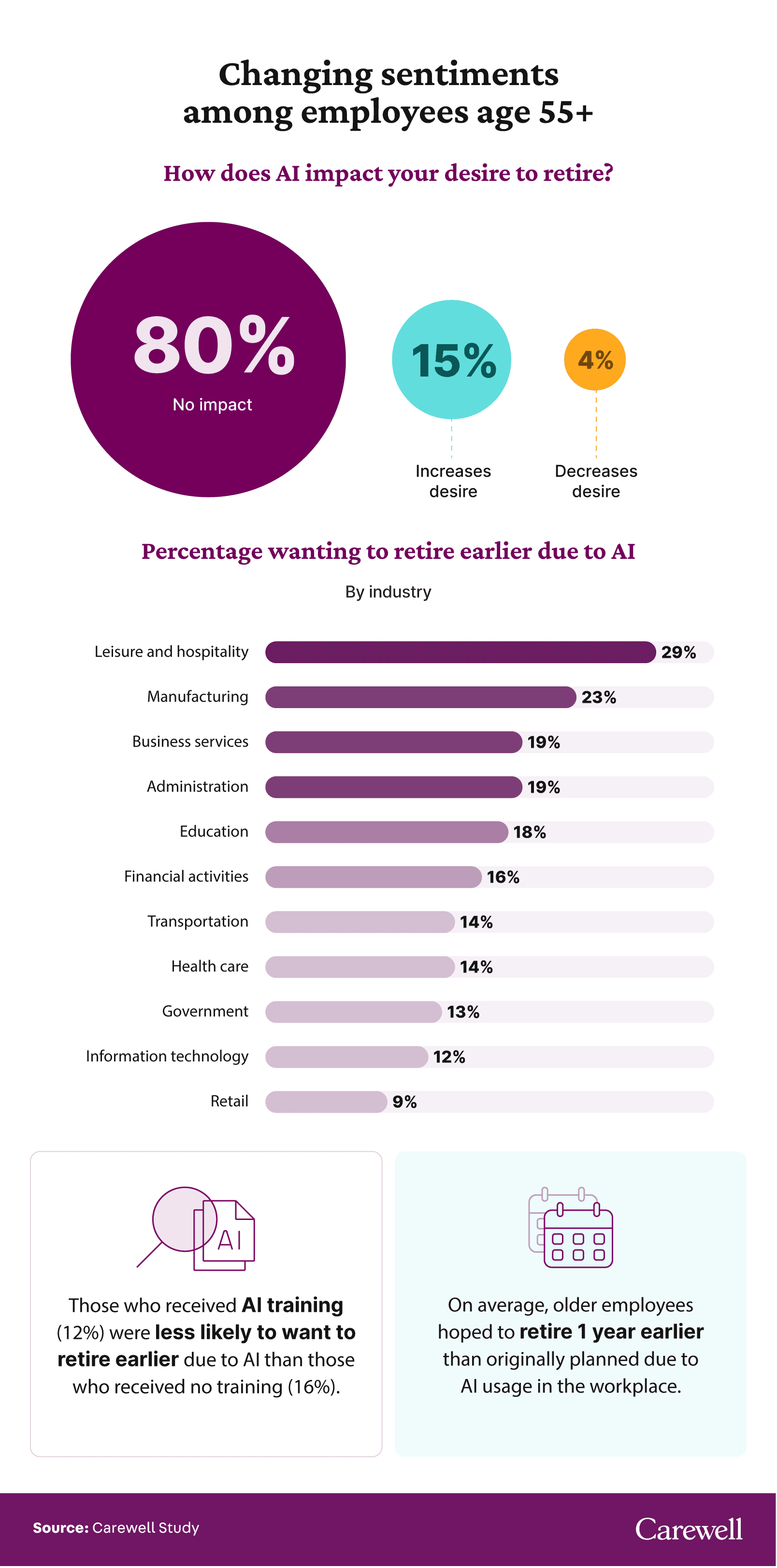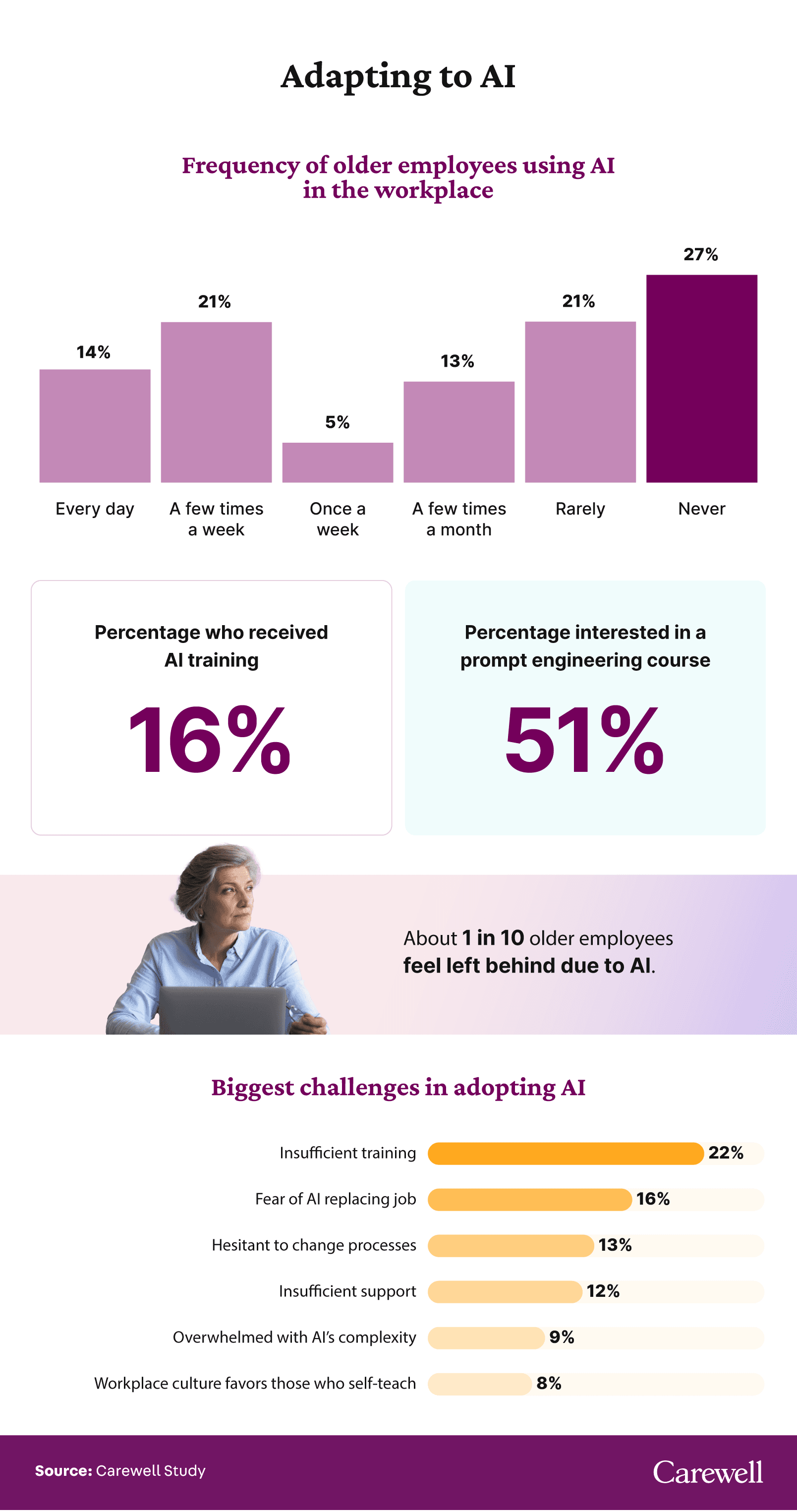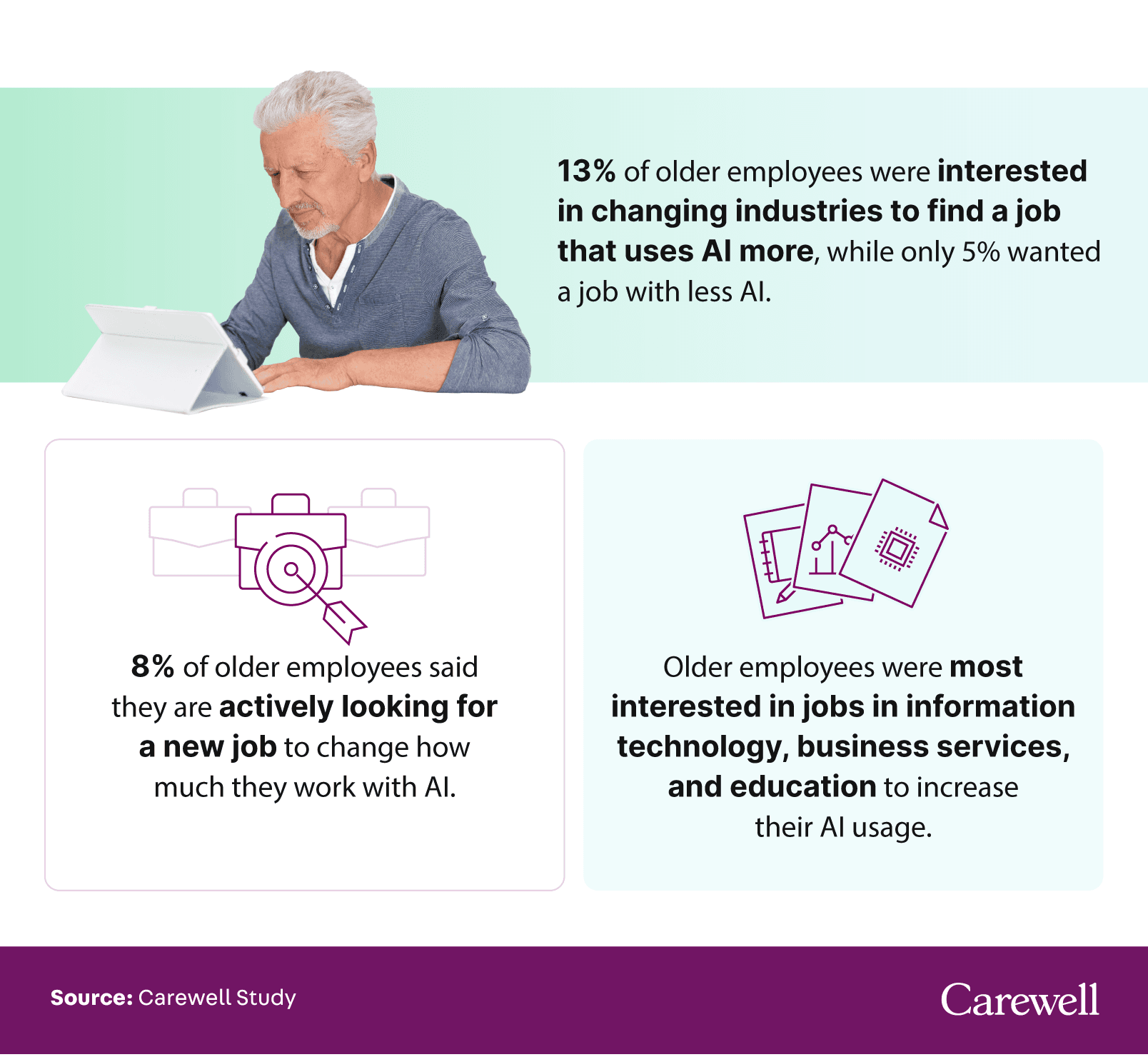How are older employees adapting as artificial intelligence (AI) reshapes the modern workplace? With technological skills often making or breaking careers, seniors could be facing unique challenges and opportunities. Our recent study explores the impact of AI on retirement plans, job satisfaction, and career transitions for workers over the age of 55.
From daily AI users to those trying to stay afloat in the digital tide, we've uncovered how this technology is influencing those in the most experienced stages of their careers. Join us as we share some surprising insights about AI adoption, training needs, and the evolving ambitions of our seasoned workforce.
Key Takeaways
15% of older employees say the increase of AI in the workplace impacts their desire to retire.
Over 1 in 10 employees over the age of 55 use AI every day at work, but 48% rarely or never use it.
51% of older employees are interested in receiving AI training.
13% of older employees are interested in changing industries to find a job that uses AI more.
Continuing Work Using AI
This section explores how AI is affecting retirement decisions and job satisfaction among seasoned workers.

The rise of AI in the workplace has impacted retirement plans for some older employees. We found that 15% of seniors said the growing use of AI at work has increased their desire to retire. Interestingly, employees' happiness levels were about the same across the board, no matter how much they used AI in their daily tasks.
However, integrating AI hasn't been without its challenges. Those who regularly used AI reported higher stress levels, which may be attributed to a lack of proper AI training. Many seniors have had to navigate new AI tools independently, without guidance or support.
Providing AI training tailored to older workers could help them feel more confident and less stressed as they adapt to new ways of working.
AI Use in the Workplace
AI's integration into every industry has created a diversity of adoption and interest among older workers. Let's explore how seniors are engaging with this technology in their professional lives.

While over 1 in 10 employees over 55 said they use AI daily at work, 48% said they rarely or never engage with it. Overall, more than half of respondents (51%) expressed interest in receiving AI training on prompt engineering, suggesting a willingness to adapt and learn new skills. Only 16% had received AI training at the time of our study.
The adoption of AI varies across industries. These are the sectors where older employees have been most likely to use AI on a daily basis:
Information technology (27%)
Retail (24%)
Leisure and hospitality (18%)
Manufacturing (17%)
Government (16%)
Transportation (14%)
Financial activities (13%)
Business services (12%)
Administration (9%)
Education (8%)
Health care (6%)
These industries rely on AI for countless tasks these days. For example, retail businesses often use it for inventory management, personalized customer recommendations, and chatbots for customer service. In the information technology sector, AI is frequently used for software development, cybersecurity, and data analysis.
Most of our respondents reported that their AI use was for work purposes. Only 9% reported using AI for personal use on a daily basis, suggesting that the workplace has been the primary driver of AI adoption for this age group.
Changing With the Times
As AI reshapes the workplace, some older employees are considering career shifts to align with these technological changes. Let's examine how AI is influencing job preferences among these experienced workers.

We uncovered a subset of senior workers who saw AI as an opportunity for career growth or reinvention: 13% expressed interest in changing industries to find jobs that use AI more extensively. Another 8% were actively looking for a new job to change how much they worked with AI. These figures indicate that while most older employees aren't looking to change careers due to AI, some view AI as a factor in their professional future.
Retirement vs. Reskilling
AI is reshaping retirement plans and career paths for many seniors, offering both challenges and opportunities. Older workers are adapting, learning, and even thriving in AI-enhanced environments. While some are eager to embrace new technologies, others are cautiously navigating this digital transformation.
We need to support our older workforce with targeted AI training and resources in order to benefit from their wealth of experience and give them the tools to succeed in an AI-driven world. The future of work is here, and it's a future where age is just a number in the face of technological advancement.
Methodology
We surveyed 893 employed Americans aged 55 or above about their experience and opinions on AI in the workplace. Among our respondents, 7% worked in financial activities, 4% worked for the government, 11% worked in health care, 11% worked in information, 3% worked in leisure and hospitality, 6% worked in manufacturing, 9% worked in education, 6% worked in administration, 12% worked in business services, 7% worked in retail, 3% worked in transportation, and the remaining 21% worked in other industries.
About Carewell
At Carewell, we understand finding a convenient and empathetic shopping experience for at-home caregiving is hard. As a family-owned and operated business, our mission is to make caregivers' lives easier by providing the products and support they need to truly care well. We're always here for you and happy to help.
Fair Use Statement
This content may be used noncommercially so long as you credit us with a link.






